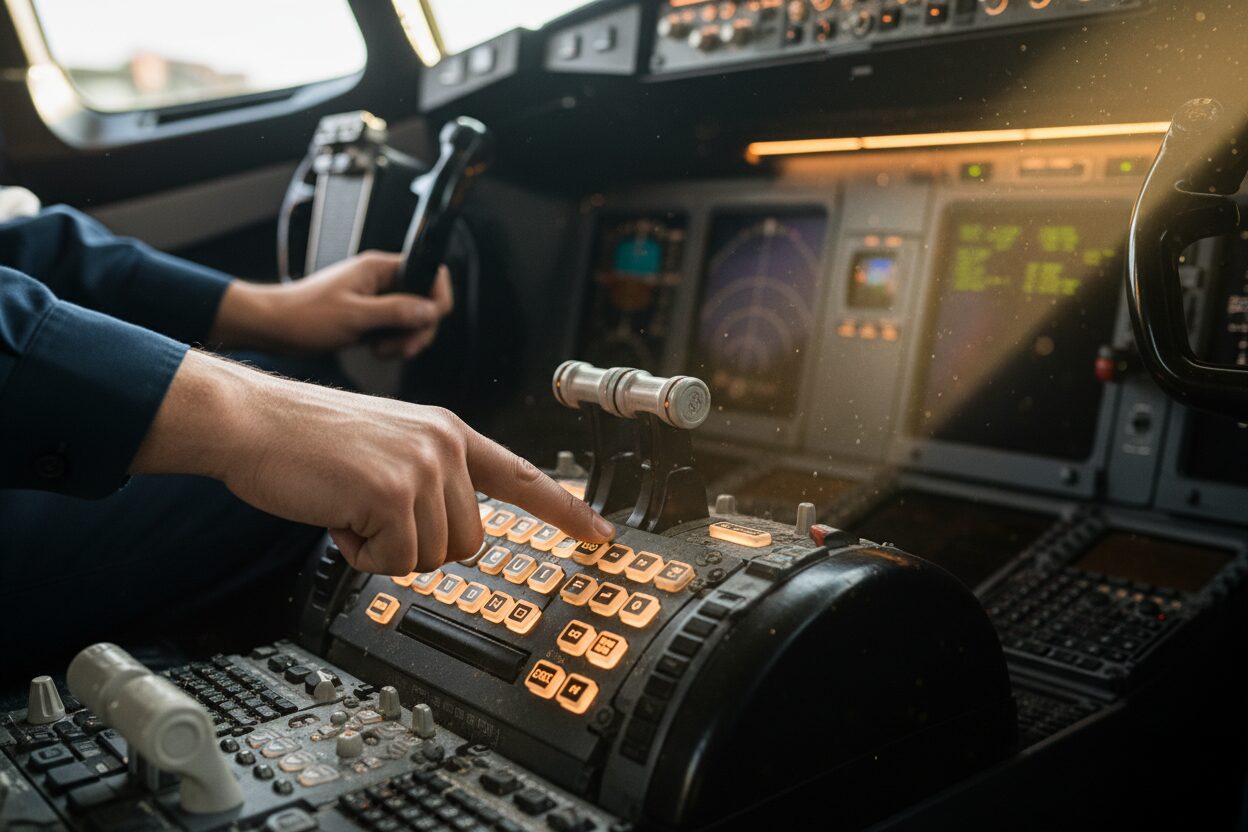Flight simulators are indispensable tools in pilot training and ongoing skill development, allowing aviators to experience realistic flight scenarios without ever leaving the ground. These sophisticated devices help pilots enhance their technical abilities, increase safety, and prepare extensively for emergency situations in ways that real world flying cannot always replicate. This article explores how flight simulators benefit pilots throughout their careers, ensuring safer skies and more confident aviators. For a comprehensive overview of becoming a commercial pilot, see our Complete Guide to Commercial Pilot Certification in 2025.
Table of Contents
What Are Flight Simulators?
Flight simulators are advanced training devices that replicate the cockpit environment and flight conditions of an aircraft. They range from basic desktop setups to full motion simulators with highly realistic visuals and controls. Pilots use these simulators to practice flying skills, navigation, and handling emergencies in a controlled, risk free environment. For answers to common questions about pilot careers and training, you may also find our Top 20 FAQs about a Pilot Career, answered useful.
Types of Flight Simulators
- Aviation Training Devices (ATD): Basic simulators primarily used for initial pilot training and instrument flying practice
- Flight Training Devices (FTD): More advanced than ATDs, these simulators offer detailed aerodynamic and system modeling. They come in various levels reflecting increasing sophistication
- Full Flight Simulators (FFS): The most advanced type, featuring motion systems, immersive visuals, and sound effects that emulate real flying conditions. These are used for airline pilot training and certification
How Flight Simulators Benefit Pilots
1. Cost Effective Training
Flight training is expensive, with costs accruing from aircraft rental, fuel, and maintenance. Simulators offer a cost effective alternative. Training hours in simulators are generally less expensive and allow pilots to log necessary instrument time efficiently. This helps reduce overall training costs significantly while maintaining high standards.
2. Safe Environment for Risky Scenarios
Many emergencies such as engine failures, severe weather, or system malfunctions are too dangerous to practice in real flights. Flight simulators enable pilots to experience and master these scenarios without any physical risk. This builds pilots’ confidence and competence in handling critical situations safely, dispelling common misconceptions about pilot training that we address in our Pilot Job Myths post.
3. Enhanced Skill Development
Simulators provide an opportunity for pilots to practice specific skills like instrument navigation, communication procedures, and managing busy airspace. They can rehearse complex maneuvers, approaches, and landings repeatedly until mastery is achieved, ensuring they are well prepared for actual flight challenges.
4. Consistent and Accessible Training
Unlike real flights, which can be delayed or canceled due to weather, maintenance, or other factors, simulators are available year round. This accessibility allows pilots to maintain proficiency and undergo recurrent training regularly, keeping their skills sharp and up to date.
5. Developing Soft Skills and Decision Making
Beyond technical flying, simulators help pilots improve important soft skills such as situational awareness, stress management, and decision making under pressure. Pilots learn to manage cockpit resources effectively and communicate clearly with crew and air traffic control, enhancing overall flight safety.
Real World Impact of Simulator Training
Simulators have saved lives by preparing pilots for unexpected emergencies. For example, US Airways Flight 1549, famously ditched in the Hudson River, demonstrated the importance of pilot training and quick decision making. Simulated training helped both the captain and first officer handle multiple engine failures and safely land without fatalities, showcasing the critical role of simulator preparedness.
Additionally, simulators are part of mandatory recurrent training for commercial pilots, a requirement described in our Commercial Pilot Certification Guide. Every six months, airline pilots undergo simulator evaluation to test their proficiency in routine and emergency procedures, ensuring they maintain high operational standards.
Conclusion
Flight simulators are essential in modern aviation, providing a safe, cost effective, and realistic training environment. They enable pilots to refine technical and decision making skills while preparing them for rare but critical emergency situations. Regular simulator training ensures that pilots remain proficient, confident, and capable of safeguarding passengers and crew. The next time you fly, rest assured that your pilot’s skills have been honed through hours of rigorous simulator practice.

